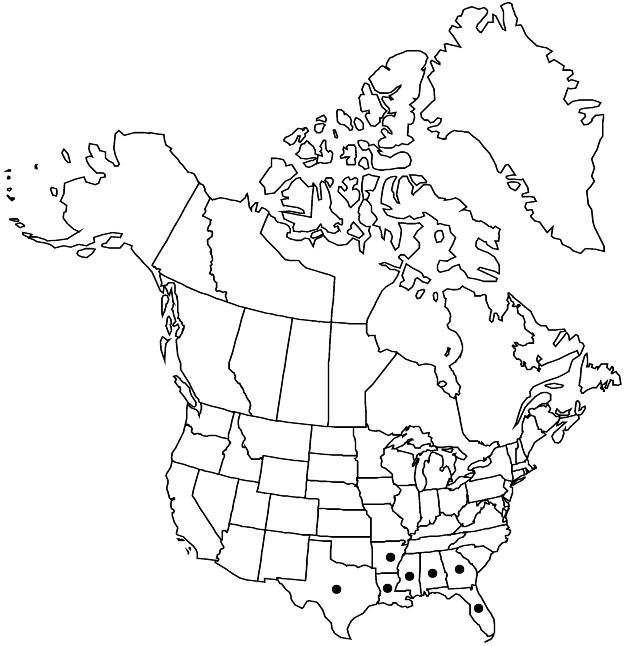Malvaviscus arboreus
Diss. 3: 131. 1787.
Plants 0.5–3[–10] m. Leaf blades elliptic to broadly ovate, 4–20[–25] × 3–12 cm, surfaces sparsely to densely hairy with simple and stellate trichomes. Involucellar bractlets linear-spatulate. Flowers ascending or erect; calyx persistent, lobes connate for 1/2–2/3 their lengths, 8–15 mm, glabrous or hirsute; petals imbricate at anthesis, asymmetrically obovate-cuneate and auriculate toward base, 1.5–4(–5) cm; staminal column with 5 apical teeth; stigmas exserted. Fruits berrylike, usually red, not winged, 8–13[–16] × 10–17 mm, fleshy, edible; mericarps broadly ellipsoid wedge-shaped, smooth, glabrous. Seeds reniform, 3/4 as wide as long. 2n = 56.
Distribution

Ala., Ark., Fla., Ga., La., Miss., Tex., Mexico, West Indies, Central America, n South America (Colombia).
Discussion
Varieties 2 (2 in the flora).
Selected References
None.
Key
| 1 | Leaf blades usually unlobed, longer than wide, apex acute, base rounded (to subcordate); stems stellate-hairy to glabrate (glabrous). | Malvaviscus arboreus var. arboreus |
| 1 | Leaf blades deeply 3-lobed, at least as long as wide, apex obtuse (acute), base usually strongly cordate; stems glabrous proximally, densely and minutely tomentose distally. | Malvaviscus arboreus var. drummondii |